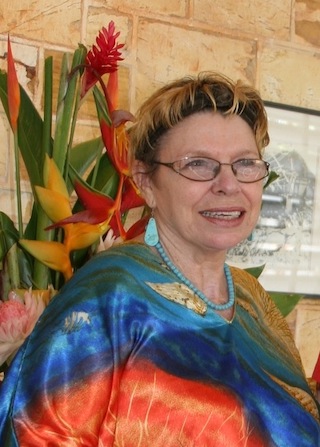 What do tourists value when they visit Australia’s Top End? Are they into shock and awe? In other words do they care as much as the tourism industry about what Australian region has the biggest crocodile? And what about birdwatching?
What do tourists value when they visit Australia’s Top End? Are they into shock and awe? In other words do they care as much as the tourism industry about what Australian region has the biggest crocodile? And what about birdwatching?
Women dominate the huge US birdwatching market, and many want to experience more than just new birds. So are our guides too fixated on twitchers, a small market dominated by men?
If many visitors wish more a more in-depth experience, then does the tourism industry deliver? Are the true experts involved, from the senior citizen who is an authority on native orchids to the grazier or Indigenous family living on their country.
If our wildlife tourism does not deliver to both citizens and visitors, then why not, and how can we fix it?
To examine the problems, potential and possibilities Wildlife Tourism Australia will hold a workshop on connecting wildlife and visitors in the Top End this coming October, to be opened by the Northern Territory Administrator, the Hon. Sally Thomas, AO.

 Topics range from eastern and western approaches to avitourism (bird tourism), comparisons between twitching and true birdwatching to how to accommodate the disabled traveller and Indigenous approaches to wildlife interpretation and difficulties they may face; from jumping financial/bureaucratic hurdles and the topical issue of tourism activities in conservation areas, to loving your (native) cockroach or snake.
Topics range from eastern and western approaches to avitourism (bird tourism), comparisons between twitching and true birdwatching to how to accommodate the disabled traveller and Indigenous approaches to wildlife interpretation and difficulties they may face; from jumping financial/bureaucratic hurdles and the topical issue of tourism activities in conservation areas, to loving your (native) cockroach or snake.
Speakers hail from the NT and the rest of Australia, Asia, Europe and the US (some via the internet), and include American academics and Bo Beolens, one of the UK’s most famous birders.
There are some exciting field trips before and after the workshop, including birdwatching and other wildlife viewing, and Indigenous guiding.
The workshop itself will take place 2nd to 4th October 2013: further details can be found on http://wildlifetourism.org.au/blog/workshop-2013
| More information: |  |
||||
|
|
 |
[1] Rainbos Pitta, Pitta iris, a Top End specialty. © DL Goodfellow
Related News
- Gamba grass fires up threat to tourist safety in the Top End Denise GoodfellowNT residents are calling for urgent action to fight a fire-prone grass introduced to Australia as cattle food that’s devastating native plants and animals in the T...
- Fat Birder brings pink stilettos to wildlife tourism World-famous birdwatcher, Bo Beolens, aka the Fat Birder, will call for more accessible nature reserves when he presents via podcast at a Darwin workshop that aims to improve wildl...
- Gamba grass: Controlling the nightmare Gamba grass (Andropogon gayanus) is a tall (4 metres high), multi-stemmed plant introduced to Australia in the 1930s as cattle fodder (Csurhes, 2005). The potential dan...
- New bird book from ‘ratbag of the north’ Variously described as an “NT Treasure” and a “ratbag of the north”, eco-tour guide, passionate birder and former buffalo hunter Denise Lawungkurr Goodfellow has published a new bo...






